The Japanese Tosa breed is prohibited in Australia, whether they are purebred or mixed breed. They fall under the category of restricted breeds, and their importation is strictly forbidden as per the Commonwealth Customs (Prohibited Imports) Regulations of 1956.
Is it a crime to breed Tosa Inu dogs in Australia? | Penalties and Restrictions
Discover the legal implications of breeding Tosa Inu dogs in Australia. Currently, it is considered a criminal offense with penalties that may result in up to 6 months of imprisonment or a fine of up to 60 units. Whether you are the owner or not, you are subject to these stringent regulations. The offense occurs when someone knowingly or recklessly allows the breeding of these dogs. Get the details on the current rules and steer clear of questionable practices!
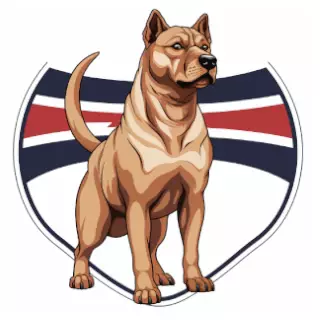
New South Wales takes a strict stance on Tosa Inu breeding. The breed is restricted, and activities such as breeding, selling, or giving them away are strictly prohibited under the Companion Animals Act 1998.
Here's an overview of the penalties under the Act:
Stay informed and comply with these regulations to avoid legal consequences related to Tosa Inu ownership in New South Wales.
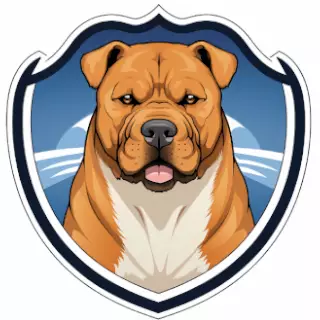
In Queensland, Tosa Inu breeding is prohibited, and the sale or giveaway of this restricted dog breed is strictly forbidden.
According to Queensland regulations, ownership of a restricted dog is only allowed with a valid restricted dog permit obtained from local authorities.
Once a Tosa Inu is classified as dangerous, menacing, or falls under the restricted breed category in Queensland, owners must adhere to specific requirements mandated by local authorities. These include:
As of January 1, 2022, the distinctive collar for a regulated Tosa Inu dog must meet specific specifications, including being yellow and red striped with a reflective element for visibility in low light conditions.
Tosa Inu owners in Queensland must comply with these regulations for responsible ownership and management of their dogs.
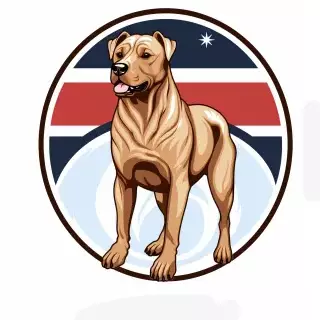
Under South Australia regulations, owning a restricted dog is strictly prohibited unless you have acquired a valid restricted dog permit from the relevant local authorities.
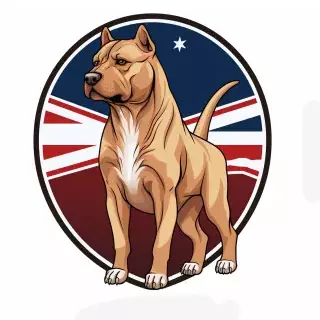
Under Victoria regulations, possessing a restricted dog is strictly prohibited unless you hold a valid restricted dog permit from the local authorities.
Breeding Tosa Inus is strictly forbidden in Victoria, Australia. Engaging in such activities is considered a criminal offense, and individuals involved may face severe consequences. Offenders could be subject to a maximum penalty of up to 6 months' imprisonment or a substantial fine of 60 penalty units, regardless of ownership.
It's crucial to note that this prohibition applies regardless of the breed of the other dog involved in the breeding process. Even if the resulting puppies are not Tosa Inus, the breeding is still considered unlawful. Authorized officers have the right to investigate suspected cases and may request DNA samples, which will be analyzed by accredited laboratories such as:
Owners also have the option to obtain their own DNA samples and have them analyzed at a laboratory of their choice. However, it's crucial to emphasize that breeding Tosa Inus without the appropriate permits and documentation is a violation of the law. It is strongly advised to carefully consider the legal requirements and potential consequences before engaging in any breeding activities involving Tosa Inus.
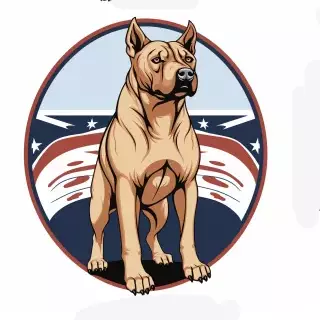
Under regulations in Western Australia, it is strictly forbidden to own a restricted dog without a valid permit obtained from the local authorities.

Under Canberra regulations, owning a restricted dog is strictly prohibited without a valid permit obtained from the local authorities.
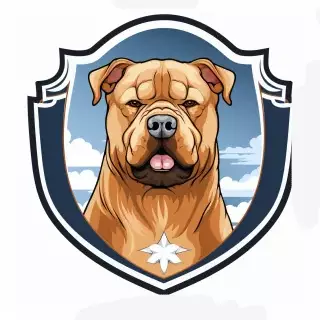
There are no Tosa Inu breeders in Tasmania, mate. It's a restricted dog breed, so breeding, selling, or giving them away is strictly prohibited.
If you're interested in becoming the proud owner of a Tosa Inu in Tasmania, it's essential to follow proper procedures. You must apply to your local council for approval.
According to regulations, the sale or transfer of a Tosa Inu can only occur once the future owner has obtained necessary approval from their council. This ensures responsible ownership and adherence to local guidelines.
Once your council grants approval for the transfer or sale of the Tosa Inu, it's crucial that the seller promptly notifies the council within 24 hours of the transaction.
Ensure a smooth and lawful process by applying to your council and obtaining the required approval before becoming the proud owner of a Tosa Inu in Tasmania.

The Tosa Inu or Japanese Tosa is an impressive, beautiful, and loyal dog, with a reserved nature towards strangers but affectionate with its close family.
It is a large dog, exhibiting physical characteristics of the molosser type and can easily exceed 60 centimeters in height at the withers
Origin
Tosa Inu have their roots in Japan.
Lifespan
On average, Tosa Inu live between 10-12 years.
Body:
is muscular and tall. The back is horizontal and straight, while the chest is broad and deep. The flanks are well tucked up but not tucked in.
Coat:
is short, hard, and dense.
Weight
Males: The Tosa Inu typically weighs between 50 and 70 kg (110-154 pounds).
Females: The average weight is between 40 and 50 kg (88-110 pounds).
Height at Withers
The Tosa Inu stands at a height between 60 and 70 cm.
Temperament
The Tosa Inu is known for its patient, bold, and courageous nature.

Origin: The Tosa Inu traces its roots to Japan, specifically the ancient province of Tosa, now Kochi Prefecture, where it originated as a fighting breed. Dog fights have been a part of Japanese culture since the 14th century.
Development: The Tosa Inu was developed through various crosses with the Japanese Shikoku-ken and six Western breeds, namely the English Bulldog, English Mastiff, Pointer, Great Dane, Saint Bernard, and Bull Terrier.
Current Use: While there are beliefs that Tosas are still used for clandestine dog fighting in some Japanese prefectures, they also serve as guard dogs in their country of origin.

One of the fundamental aspects of raising a Tosa Inu puppy is effective socialization, a process that should commence early to mitigate undesirable behaviors. Socializing your Tosa Inu involves exposing them to diverse people, animals, and environments from a young age, fostering proper interaction and preventing the development of fears and reactive responses. Positive reinforcement is crucial, given the breed's sensitivity, as Tosa Inus strongly react against mistreatment and punishment.
The Japanese Tosa breed shows great receptivity to obedience training and mental stimulation, naturally gravitating towards activities that challenge and engage their minds. Establishing basic obedience commands early on is essential for maintaining control over this sizable dog. Teaching commands such as sit, stay, or come not only ensures safety but also strengthens the bond between you and your Tosa Inu.
It's important to note that Tosa Inus may develop behavioral issues without sufficient affection and appropriate exercise. While not inherently prone to excessive barking, they may exhibit destructive habits if their needs are neglected. Additionally, overlooking the socialization process can lead to reactive behavior towards other dogs. Regular affection, proper exercise, and early training are essential for nurturing a well-adjusted Tosa Inu.

Character: calm and sensitive
The calmest are the bravest: this samurai proverb perfectly describes the Tosa Inu, a magnificent Japanese breed. The Tosa Inu possesses a calm and sensitive nature with a sublime, almost majestic charisma. It observes events attentively from a distance without becoming nervous or aggressive.
While an effective guardian and protector due to its courage and fearlessness, the Tosa Inu always maintains composure. Wild and loud barking is not its style.
According to the official standard, the Tosa Inu has a patient, audacious, and courageous temperament. This breed is extremely loyal to the family, confident in its abilities, and exhibits a reserved demeanor with unfamiliar individuals. However, it becomes devoted to those who treat it with affection and care.
In terms of its relationship with small children, the Tosa Inu typically excels. With a natural protective instinct and a calm, relaxed temperament at home, the Tosa Inu is well-suited for the antics and ear-pulling of little ones. Nevertheless, being a large dog, it may unintentionally cause harm during play. Therefore, it is highly recommended to supervise play and educate children on how to interact with this noble dog.
When properly trained, the Tosa Inu or Japanese Tosa can get along splendidly with other dogs. It's crucial to monitor its reactions to reactive dogs, as the Tosa Inu is a dog of great valor and courage that won't hesitate to protect those it considers companions for life.
Responsible adoption of the Tosa Inu should be undertaken by an experienced individual familiar with the breed. If not accustomed to training or caring for large dogs, it's advisable to consider other breeds. Additionally, having a financial cushion for potential behavior issues is essential, allowing for consultation with a suitable professional for guidance in training and care.
Remember that due to its considerable physical strength, it requires someone capable of controlling it in case of an emergency. The use of an anti-pull harness and regular obedience training are fundamental factors if one lacks sufficient physical strength. Keep this in mind.

Nutrition: Watch out for caloric density
To prevent hip dysplasia, paying attention to your furry friend's diet is crucial. While puppies require highly energetic food, it's advisable to gradually reduce caloric density after six months. This helps prevent rapid growth, as joint problems such as hip and elbow dysplasia often arise when dogs grow too quickly. Bones may struggle to keep up with rapid muscular development.
Does it need special food?
Otherwise, the Tosa Inu doesn't require any special food. It enjoys both meat and fish, whether raw, cooked, or in the form of kibble or wet food. However, it's important to note that this breed is prone to gaining weight easily. If there are cases of overweight in its family, it's advisable to precisely control the quantities and avoid giving too many treats between meals.
To determine what a Tosa Inu should eat and how much, consulting with a veterinarian is recommended. The amount, components, and mineral proportions depend on individual criteria such as age, weight, activity level, and living conditions.
Fresh water several times a day
It's important to provide fresh water to the Tosa Inu at all times. Due to its large jowls, it drools a lot, and long threads may hang from its mouth while eating. Therefore, it's advisable to clean the water bowl and refill it with fresh water several times a day to prevent bacterial buildup.

Exercise:The Japanese Tosa is a dog that requires between 2 and 3 daily walks to socialize with other animals, exercise, relax, and enjoy mental stimulation. A recommended activity that combines stimulation and relaxation is planting, a simple activity to carry out.
Grooming: The Tosa Inu's coat is very easy to maintain. These Japanese molossians have a short and tough coat that requires a weekly brushing to keep it free of dead hair and dirt. Additionally, it's recommended to bathe them approximately every two months, but more frequently if they get excessively dirty. Regular cleaning of food remnants and dirt that may accumulate in the wrinkles of their face is also necessary for proper hygiene.
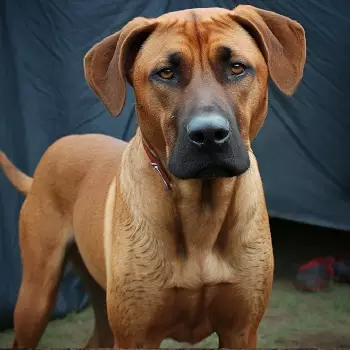
In general, Tosa Inu dogs enjoy good health and are not particularly prone to common hereditary diseases. However, this largely depends on the genetic line they come from, as there are responsible breeders, but also puppy mills that simply seek profit at the expense of the animals' well-being.
Some issues that may affect the Tosa Inu breed include hip dysplasia, heatstroke, and hypertrophic cardiomyopathy. To ensure the Tosa Inu's well-being, it's advisable to visit the vet every 6 months, diligently follow their vaccination schedule, and regularly deworm them, practices that every dog should undergo.
Additionally, attention to bodily hygiene, including teeth cleaning, ear care, and, if necessary, emptying anal glands, is crucial for proper maintenance.